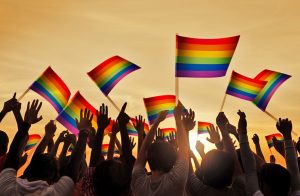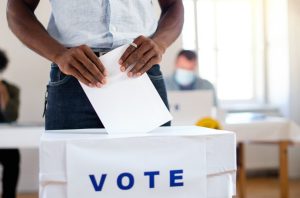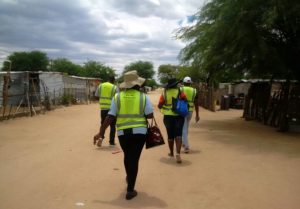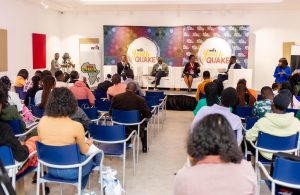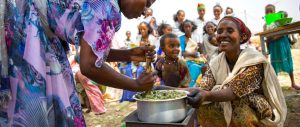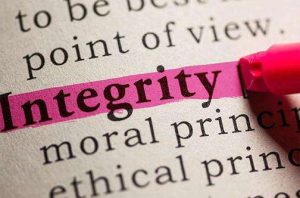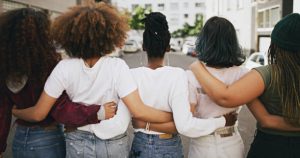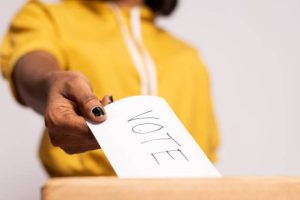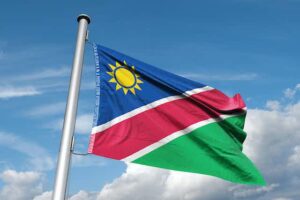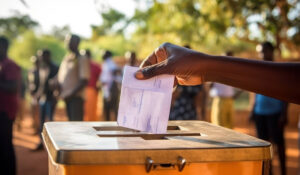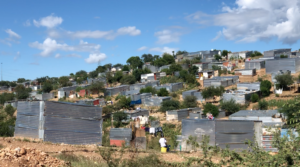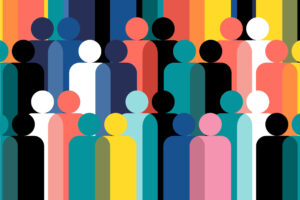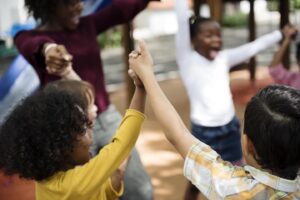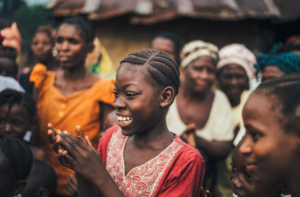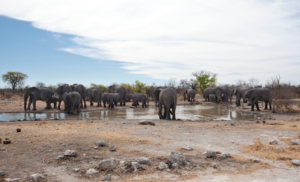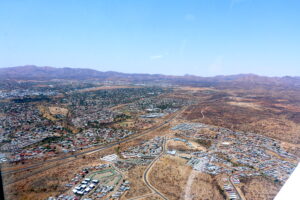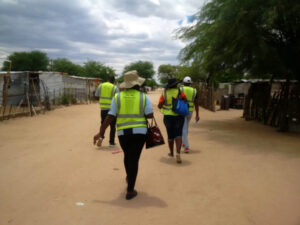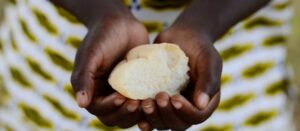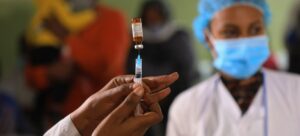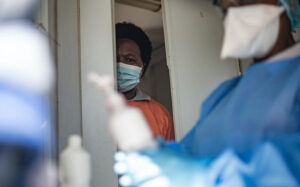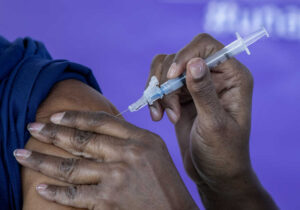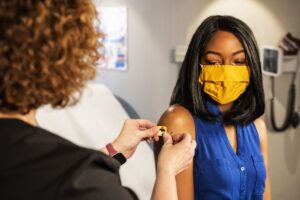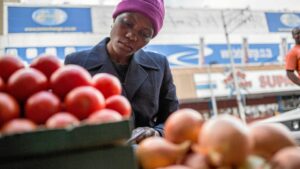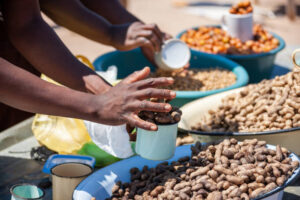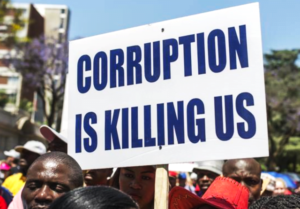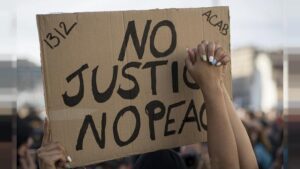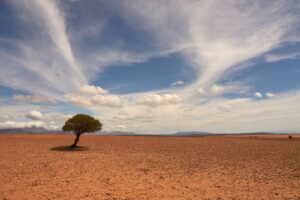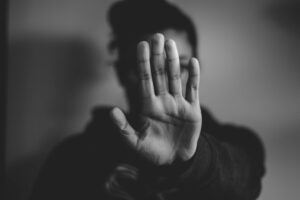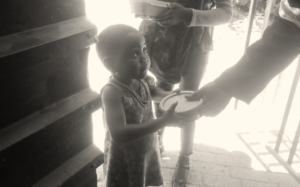- The Digital Closet: Groundbreaking study on the impact of online hate speech on Namibia’s LGBT+ communityThe Namibia Diverse Women’s Association (NDWA) and the NMT Media Foundation released ‘The Digital Closet’ on 11 December 2024, a landmark study authored by Survey Warehouse’s Christiaan Keulder, exploring the profound effects of online hate speech on Namibia’s LGBT+ community. This comprehensive report is the first of its kind in Namibia, shedding… Read more: The Digital Closet: Groundbreaking study on the impact of online hate speech on Namibia’s LGBT+ community
- Factsheet: Impact of online hate speech targeting the LGBT+ community in Namibia Most members of the community (94%) have experienced hate speech whilst being online during the past year, and nearly 3 in five (59%) personally experienced intersecting hate speech. More than two in 3 (69%) reported that such experiences increased over the same period, suggesting deteriorating conditions in online spaces for… Read more: Factsheet: Impact of online hate speech targeting the LGBT+ community in Namibia
- Namibia’s election debacle: Time for urgent reformNamibia, quo vadis? By Christiaan Keulder As it turned out, the 2024 presidential and National Assembly election was a watershed. But for all the wrong reasons. Never in its democratic history has Namibia’s election management been this shambolic, and never before have citizens had to endure so much physical and… Read more: Namibia’s election debacle: Time for urgent reform
- Afrobarometer clarifies inaccuracies in recent media coverage of Round 10 survey in NamibiaAfrobarometer wishes to address recent inaccuracies in media coverage related to its Round 10 survey findings in Namibia. Afrobarometer is a pan-African, non-partisan survey research network that provides reliable data on African experiences and evaluations of democracy, governance, and quality of life. Nine survey rounds in up to 42 countries have… Read more: Afrobarometer clarifies inaccuracies in recent media coverage of Round 10 survey in Namibia
- Namibia’s Youth Engagement in PoliticsSurvey Warehouse’s Christiaan Keulder was invited to speak at the 2024 #YouthQuake Conference on International Youth Day 2024. His talk was titled ‘Namibia’s youth engagement in politics’, and you can read it in full below. The #YouthQuakeNam24 conference, held on August 12, 2024, at the Goethe-Institut in Windhoek, brought together over 100… Read more: Namibia’s Youth Engagement in Politics
- Food insecurity on the rise in Namibia, recent Afrobarometer study showsAlmost three-quarters of Namibians went without enough food to eat at least once during the previous year, a recent Afrobarometer survey indicates. During the same period, more than six in 10 citizens experienced shortages of cooking fuel at least once.
- Majority of Namibians say corruption is rising and citizens risk retaliation if they speak out, new Afrobarometer study showsTwo-thirds of Namibians say corruption in the country is getting worse, although this share has decreased significantly in recent years, a new Afrobarometer survey indicates. Large majorities believe that at least “some” representatives and officials in government, civil society, and business are involved in corruption. Most citizens say the government is doing… Read more: Majority of Namibians say corruption is rising and citizens risk retaliation if they speak out, new Afrobarometer study shows
- Afrobarometer: Namibians support access to contraceptives and sex educationNamibians split on termination of unwanted pregnancies
- Afrobarometer 2024 | Views on elections and the state of democracyPresentation 31 May 2024: Highlights from 2024 Afrobarometer Round 10 survey in Namibia DOWNLOAD PRESENTATION
- Majority of Namibians support elections as the best way to choose their leaders, new Afrobarometer study showsAlmost three-quarters (72%) of Namibians say they voted in the last national election in 2019, while 25% say they did not.
- BOOK: State, Society and Democracy – A Reader in Namibian PoliticsThis book takes stock of Namibia’s progress towards a consolidated democracy. In doing so, it looks at the influence of two forces on democracy: the Namibian State and Namibian society. It was compiled by Survey Warehouse founder and political analyst Christie Keulder.
- BOOK: Dominant Parties as Governments in Southern AfricaTheir changing nature and its implications for democracy and democratic consolidation
- How do Africans view military interventions?54% of Africans support the military taking control when politicians abuse power, but 68% don’t see military rule as an alternative to democracy.
- Namibians lack confidence in economy, express rising dissatisfaction with governmentAfrobarometer Dispatch No. 636 | Darren Janz This Afrobarometer Dispatch examines Namibians’ changing views on the country’s economic trajectory alongside evolving public support for its ruling party. Since 2017 – and especially since 2019 – Namibians have expressed significantly more pessimistic views on the country’s general direction and economic condition… Read more: Namibians lack confidence in economy, express rising dissatisfaction with government
- Namibia: Public opinion and tolerance of homosexualityWho is blocking reform of Namibia’s anti-gay law? The struggle against the criminalisation of homosexuality is at least 500 years old. In the ongoing case of Dausab vs the Minister of Justice, the Namibian High Court has to decide whether or not the laws that criminalise sodomy among men are unconstitutional or not. This… Read more: Namibia: Public opinion and tolerance of homosexuality
- Namibians see police falling short of professional conduct and respect for citizens’ rightsAfrobarometer Dispatch No. 635 Approval of government performance on crime declines as feelings of insecurity rise.This dispatch reports on a special survey module included in the Afrobarometer Round 9 (2021/2023) questionnaire to explore Africans’ experiences and assessments of police professionalism. Findings in Namibia show that feelings of insecurity and fear… Read more: Namibians see police falling short of professional conduct and respect for citizens’ rights
- Ensuring children’s welfare remains a challenge in Namibia, especially for the poorAfrobarometer Dispatch No. 612 | March 2023 This dispatch reports on a special survey module included in the Afrobarometer Round 9 (2021/2023) questionnaire to explore Africans’ attitudes and perceptions related to child welfare. Survey findings show that about half of all adult Namibians report that children not attending school is a… Read more: <strong>Ensuring children’s welfare remains a challenge in Namibia, especially for the poor</strong>
- Two decades of gauging public opinion: Looking back at Afrobarometer’s remarkable journeyTwo decades of gauging public opinion: Looking back at Afrobarometer’s remarkable journey Bratton, Gyimah-Boadi, & Mattes. It sounds like a law firm. No, it’s a group of eminent professors and thought leaders driven by a vision of making African voices a key pillar of policy- and decision-making. Their journey to ensure African… Read more: Two decades of gauging public opinion: Looking back at Afrobarometer’s remarkable journey
- NAMIBIA: Rapid Assessment of Skilling and Reskilling Needs Arising from the effects of Covid-19This Rapid Skills Assessment was undertaken by the International Labour Organization (ILO), under the Skills Initiative for Africa (SIFA), a Programme of the African Union Commission (AUC), and the African Union Development Agency (AUDA-NEPAD). The SIFA Programme is financed by the European Union and the German Government and is implemented… Read more: NAMIBIA: Rapid Assessment of Skilling and Reskilling Needs Arising from the effects of Covid-19
- Urbanisation, Public Goods Provision and Quality of Democracy in Namibia Survey – FES Namibia projectThis survey was conducted at the behest of the Friedrich-Ebert-Stiftung (FES) Namibia. The report was launched on 28 September 2022 in Windhoek. The Just City project’s aim is to improve an empirical understanding of the relation between the provision of public goods and support for democracy by investigating the social… Read more: Urbanisation, Public Goods Provision and Quality of Democracy in Namibia Survey – FES Namibia project
- Namibia: Afrobarometer Round 9 ResultsSummary of results for Namibia, 2021 Afrobarometer, a nonprofit corporation with headquarters in Ghana, is a pan-African, nonpartisan survey research network that provides reliable data on Africans’ experiences and evaluations of democracy, governance, and quality of life. Eight rounds of surveys have been conducted in up to 39 countries since 1999. Round… Read more: Namibia: Afrobarometer Round 9 Results
- STRICKEN BY POVERTY : More than half of Namibians had to survive without essentials in 2021More than half of Namibians repeatedly went without basic life necessities during the previous year, placing them in the category of “moderate lived poverty” or “high lived poverty”, the most recent Afrobarometer survey for Namibia indicates. The proportion of Namibian citizens who suffered frequent deprivation of basic life necessities has… Read more: STRICKEN BY POVERTY : More than half of Namibians had to survive without essentials in 2021
- NAMIBIA’S MEDIA: Changing landscapeAFROBAROMETER DISPATCH | FEBRUARY 2020 KEY FINDINGS: The most common source of daily news for Namibians is the radio (62%). By 2021, more than 44% of Namibians had still “never” use the internet. Social media users are most frequently blamed as sources of fake news, followed by journalists and politicians.… Read more: NAMIBIA’S MEDIA: Changing landscape
- HIGH VACCINE DISTRUST: Most Namibians still unprotected against Covid-19 virusAFROBAROMETER NEWS RELEASE 18 February 2022 As of October-November 2021, only about one-quarter (27%) of adult Namibians say they have received one or more doses of a COVID-19 vaccine (Figure 1). o Another 27% say they are “somewhat likely” or “very likely” to try to get the vaccine. o More than four… Read more: HIGH VACCINE DISTRUST: Most Namibians still unprotected against Covid-19 virus
- NO TO FORCE: Namibians reject mandatory Covid-19 vaccinationsAFROBAROMETER NEWS RELEASE 18 February 2022 Citizens older than 45 are somewhat more supportive of mandatory vaccinations than their younger counterparts. Opposition to mandatory vaccination is highest among 18-to-25-year-olds (77%). Citizens above age 45 are somewhat more supportive of mandatory vaccinations than their younger counterparts. Opposition to mandatory vaccination is… Read more: NO TO FORCE: Namibians reject mandatory Covid-19 vaccinations
- NAMIBIAN ATTITUDES: Mixed views of government’s Covid-19 response & vaccine scepticismA majority of Namibians approve of the government’s overall response response to the Covid-19 pandemic, but are critical of several related issues, including insufficient Covid-19 relief efforts and suspected corruption in Namibia during the pandemic. Many are also sceptical of the safety of Covid vaccines, according to the latest Afrobarometer… Read more: NAMIBIAN ATTITUDES: Mixed views of government’s Covid-19 response & vaccine scepticism
- YOUTH & DEMOCRACY: Namibian youth, democracy and politics: An overviewThis paper will look at specific trends regarding participation of Namibia’s youth in the political processes of the country.
- DOUBT: Many Namibians doubt vaccine safetyNamibia reported its first case of COVID-19 on 13 March 2020. Four days later, the government declared a state of emergency that would eventually encompass a ban on international travel and mass gatherings, social distancing, and phased lockdowns (WHO Africa, 2020). Since then, the country has experienced four waves of… Read more: DOUBT: Many Namibians doubt vaccine safety
- SNAPSHOT OF A PANDEMIC: Covid-19 impact on Namibian livelihoods (2020)Namibian households are struggling to cope with the impact of the pandemic on their livelihoods. They have experienced reductions in income mainly as a result of retrenchments or reductions in salary and wages. Most report difficulties in meeting financial commitments and many expect problems with food security. Most households that… Read more: SNAPSHOT OF A PANDEMIC: Covid-19 impact on Namibian livelihoods (2020)
- COVID-19 SNAPSHOT: Impact of pandemic on business in Namibia (2020)The COVID-19 crisis has significantly affected enterprises in Namibia. Considering the important role that businesses play in creating jobs, economic growth, development and prosperity, Survey Warehouse conducted a needs assessment survey to identify key challenges faced by businesses resulting from COVID-19. This survey was conducted with 517 enterprises in 13… Read more: COVID-19 SNAPSHOT: Impact of pandemic on business in Namibia (2020)
- EXPERTS DISCUSS: Trust in the Judiciary (2021)Trust in the competence of the judiciary is strong, albeit lower amongst more experienced respondents, a 2021 survey among Namibian legal practitioners found. The survey was undertaken by ISG Risk Services in collaboration with Survey Warehouse and published in December 2021. The survey also found that legal practitioners are more… Read more: EXPERTS DISCUSS: Trust in the Judiciary (2021)
- SPEAK UP: Africans see growing corruption, poor government response, but fear retaliation if they speak outDeveloping countries lose $1.26 trillion a year to corruption, theft, and tax evasion, according to analysts’ estimates – a sum large enough to lift 1.4 billion people above the poverty line for six years (Fleming, 2019). Unless we control corruption, development experts say, achieving the other Sustainable Development Goals will… Read more: SPEAK UP: Africans see growing corruption, poor government response, but fear retaliation if they speak out
- A WOMAN’S RIGHT: Namibians see gender-based violence as priority issue to addressDespite the government’s efforts, gender equality remains a goal rather than a reality, and some analysts point to reports of increased GBV during the COVID-19 pandemic as evidence of a “shadow pandemic”. This Afrobarometer dispatch reports on a special survey module included in the Afrobarometer Round 9 (2021/2022) questionnaire to… Read more: A WOMAN’S RIGHT: Namibians see gender-based violence as priority issue to address
- NAMIBIA IS SAFE: But levels of fear are on the riseThree out of four Namibians consider their country a safe place to live, a recent Afrobarometer survey indicates. The same proportion of citizens say safety and security have improved in Namibia over the past five years – even as increasing numbers report fear of crime. More than half of Namibians… Read more: NAMIBIA IS SAFE: But levels of fear are on the rise
- HELP EACH OTHER: Namibians look to government, one another for action on climate and environmentThis Afrobarometer-Namibia dispatch reports on special survey modules included in the Afrobarometer Round 9 questionnaire to explore Namibians’ experiences and perceptions of climate change, pollution and environmental governance, and natural resource extraction. Findings show that while climate change is still an unknown concept to more than half of Namibians, those who… Read more: HELP EACH OTHER: Namibians look to government, one another for action on climate and environment
- USED TO IT: For most Namibians, gender-based violence is common in the home and neighbourhoodA majority of Namibians believe that violence against women and girls is common in their homes and communities, the most recent Afrobarometer survey shows. While more than half believe that men are never justified in physically disciplining their wives, about four in 10 say this can be justified at least… Read more: USED TO IT: For most Namibians, gender-based violence is common in the home and neighbourhood
- NAMIBIA 2021 SCORECARD: Top marks for gender equality, but thumbs down for poverty & hungerA new Afrobarometer Sustainable Development Goal (SDG) Scorecard shows that Namibia is achieving gender equality in employment. The Afrobarometer SDG Scorecard, which provides citizens’ assessments of Namibia’s progress over a recent five-year period on important aspects of the United Nations Sustainable Development Goals, also reveals that the country is doing… Read more: NAMIBIA 2021 SCORECARD: Top marks for gender equality, but thumbs down for poverty & hunger

